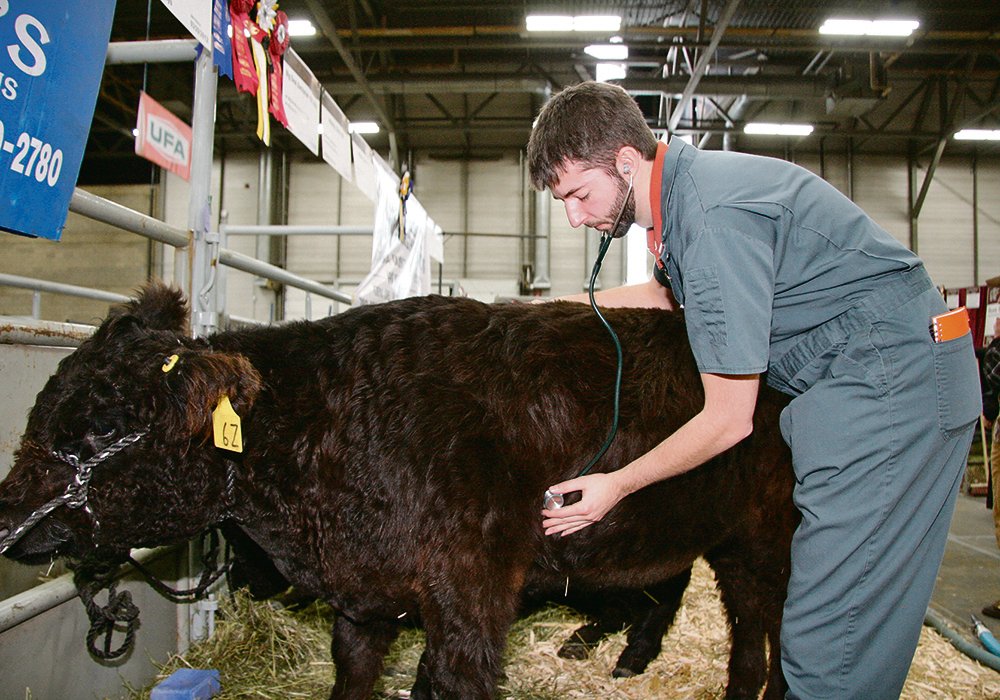Action must be taken to ease what is becoming a critical shortage of veterinarians in Alberta, says a leader of the province’s beef industry.
“It’s just really reached a peak right now where the access to veterinarians, especially in more remote rural areas, is starting to become what I believe is an animal welfare issue,” said Melanie Wowk, chair of the Alberta Beef Producers.
Besides the financial loss caused by the preventable illness or death of valuable livestock, it is taking an emotional toll on farmers and ranchers who are unable to get help for their animals, she said.
Read Also

University of Saskatchewan experts helping ‘herders’ in Mongolia
The Canadian government and the University of Saskatchewan are part of a $10 million project trying to help Mongolian farmers modernize their practices.
“I think sometimes it ends up in people getting their neighbours or friends to do things for them that they’re not trained to do… but I think out of desperation, it’s just done.”
The shortage not only affects livestock sectors in Alberta ranging from beef, chicken and pork to sheep and goats, it also extends to other provinces across Canada, she added.
Although none of the provincial beef producer groups have officially asked the Canadian Cattlemen’s Association about the problem, president Bob Lowe has heard anecdotally about the situation. It is likely widespread enough to be a national issue, he added.
Wowk said Alberta Agriculture Minister Nate Horner has stated he will be making an announcement to address the problem. He discussed the issue during an ABP meeting Feb. 8 in Brooks, Alta.
Western Producer queries to Horner’s office, asking for more details, did not get a response by press time.
The Ontario and federal governments announced Jan. 19 they will provide up to $4 million to boost veterinary services in that province.
“The Livestock Veterinary Innovation Initiative is a new, cost-share program that will increase the access options for veterinary care, especially in rural and northern Ontario, to better support animal health, the livestock agri-food sector and the strength of the province’s food supply,” said a statement.
The Ontario initiative will boost options such as telemedicine and virtual or online care by providing financial support for things such as special equipment and training for veterinarians. The initiative will also address the challenges facing mobile clinics, “such as long distances between farmers and animal health care providers, and the shortage of food-animal veterinarians working in underserviced areas.”
It will be funded through the federal-provincial Canadian Agricultural Partnership. Successful applicants will be compensated for up to 35 percent of eligible expenses for Ontario as a whole, and to a maximum of 50 percent in areas identified as underserviced.
















